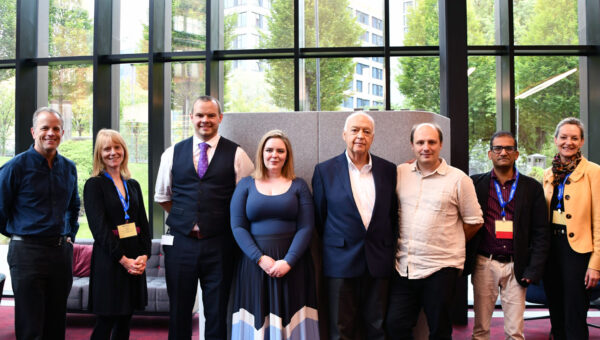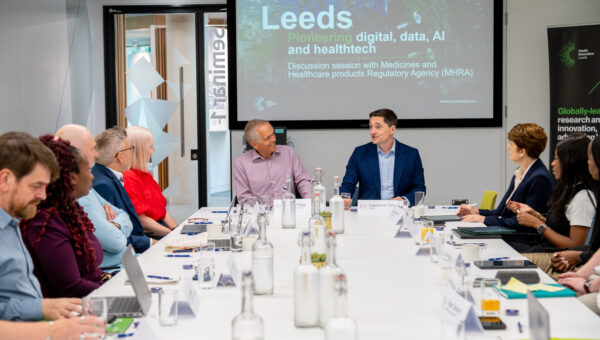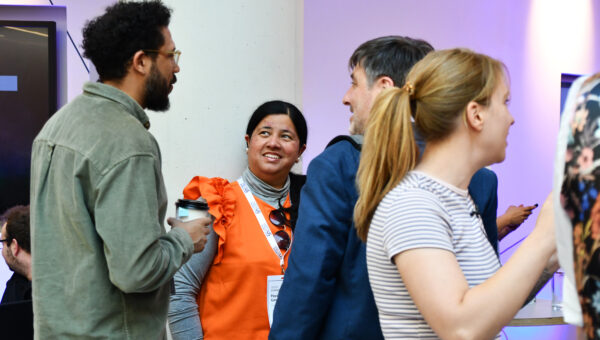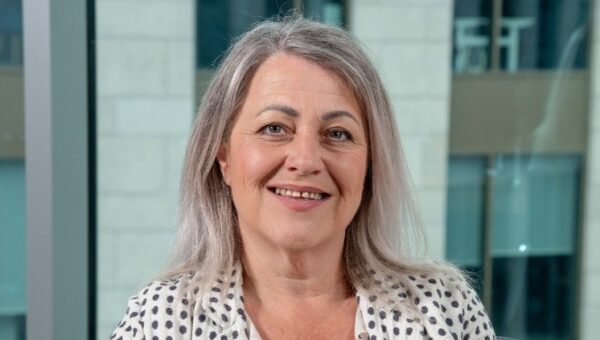The Future of Innovation: Can Leeds lead the way?

Can Leeds lead the way to a resilient, low carbon future?
The answer – from our expert panellists and online poll of delegates – was a resounding “yes” at the latest in our Future of Innovation events series held last week.
Introduced by Nexus Director, Dr Martin Stow, and compered by Leeds City Council’s Chief Officer, Culture and Economy, Eve Roodhouse, the webinar was part of the week-long “Connecting Voices for Climate Action” activity, hosted by the University of Leeds, ahead of the UN Climate Change Conference of the Parties (COP26) in Glasgow in November.
Our panellists – Professor Iain Clacher, Pro Dean for International, Leeds University Business School; Amelia Duncan, Research Fellow in Urban Climate Action, University of Leeds, based at the Place-based Climate Action Network; Nick Baker, Deputy Director, COP26 Unit, Cabinet Office; Julian Wells, Director, Whitecap Consulting and FinTech North and Dr David McKee, CEO, CTO and Founder, Slingshot Simulations – provided crucial insights and prompted discussion on a number of key points.
We’ve captured a few of the key takeaways below, but you can access the full session here.
Eve Roodhouse kicked off the debate by outlining the action being taken by Leeds City Council and its commitment to future progress. She said:
“The Council declared a climate emergency in 2019, but was taking steps before then. We now have the largest fleet of electric vehicles of any UK council, we’ve committed to a major tree planting initiative across the city and we’ve secured government funds to improve retrofit of some of our public sector and historic buildings. But there is much more to do. This is a serious situation for humanity, but we can face it with optimism. Leeds has the commitment, the will and the imagination.”
The commercial incentive for businesses to take vital carbon reduction steps, was a recurring theme. Iain Clacher spoke about the Leeds UK Centre for Greening Finance and Investment (CGFI), which Ian will lead and will be based at Nexus:
“This is not about new science, its translational work – how to incorporate climate risk assessment into your business. We will help you accelerate your business and route to market.”
Referencing Richard Curtis’ “Make My Money Matter” campaign, which calls for a world where we can demand our pensions are spent to build a better future, he added: “People want to know more about where their money is invested and what it is doing – that makes a real impact.”
Julian Wells agreed and said: “Regulation is mandatory, but the cultural aspect is critical. It is becoming difficult for businesses not to have a position on this. Customers have expectations – some 94% of people aged 18 to 34 had moved or were looking to move their ISA to ethical providers, according to a Triodos Bank report – that starts to drive demand.”
The power of data was another key discussion point with David McKee describing the trends across Leeds, the UK and the US. He said:
“We’re seeing a two-stage process. First to understand your current situation: we know there’s a problem to solve, but what is the current status of our business? Secondly, to ask what tools we need to do something about it. Data is critical to enable board directors to make informed decisions quickly around initiatives which will reduce emissions and save costs.”
The role of the University of Leeds was highlighted throughout the debate, with Amelia Duncan describing the work of the Leeds Climate Commission – the first in the UK, which created a blueprint for the rest of the country. She commented:
“The Commission provides an independent voice to drive change, monitor progress, celebrate success and provide support. We’ve recently published the net zero carbon road map for Leeds, which highlights the economic case for action, showing how implementing cost-effective carbon reduction methods – such as better housing and transport – means emissions could be reduced by up to 41% and reduce Leeds’s energy bill by £650m a year.”
The University’s “Connecting Voices for Climate Action” initiative is part of a comprehensive programme of activity and events in the run-up to COP 26. Speaking about the ambitions for the conference, Nick Baker said:
“Climate change won’t stop when COP26 does – it gives us a deadline and commitments, but we all have a huge part to play in sticking to those commitments to reach net zero. Businesses, cities, regions and civic society need to work together. It is a challenge, but there are great rewards.”
We also asked our panel for their key predictions for Leeds’ climate change future:
“Cities like Leeds have a major role to play, inspiring others to follow their lead. The momentum for net zero is inescapable and collaboration is going to be crucial. SMEs who don’t have the resources should look at research & development collaboration with universities.” – Nick Baker
“Investors are looking at climate change when they decide where they are going to invest: transparency and disclosure will start to drive behaviours. We also need to see big business take on the big-ticket items, so they become cheaper and ubiquitous over time and easier for small businesses to adopt.” – Iain Clacher
“Leeds has set an ambitious target of reaching net zero by 2030 and I’m feeling optimistic. Leeds is a leader in climate action already. The Place-based Climate Action Network (PCAN) will play a key role in bringing together the research community and decision makers across the public, private and third sectors.” – Amelia Duncan
“Culture is key – the more we embed climate action into our forward thinking, it should become part of our day-to-day being and expectations. We will see more initiatives such as Leeds-based start-up Tred and Curveblock. There are huge opportunities for young people with passion and knowledge in this area.” – Julian Wells
“More data-driven decision making is going to be key, as well as community engagement. Leeds is the testbed for a lot of technology – let’s show it to the rest of the world.” – David McKee
So can Leeds lead the way to a resilient, low carbon future? 62% of delegates said “yes” at the beginning of the debate, converting to 81% in our close-of-session poll. Nexus Director, Dr Martin Stow said:
“This was a valuable discussion with some powerful insights from our expert panel and great interactions with our virtual delegates. As the UK’s fastest growing city, Leeds will play a critical role in our low carbon future and sharing knowledge and ideas will be a vital part of that process.
Latest news

Landmark partnership launches world-first digital twin project for the NHS
The way chronic kidney disease (CKD) is diagnosed and treated could be transformed through a new partnership between the Health Innovation Network Yorkshire & Humber, Nexus, the West Yorkshire ICB and Kidney Research UK, who have signed a landmark Memorandum of Understanding (MOU) to drive innovation and impact in this area.
Read article
MHRA leadership returns to Leeds to connect with the health innovation ecosystem
Just two months after announcing the launch of a new digital hub in Leeds, we were pleased to welcome Lawrence Tallon, Chief Executive of the Medicines and Healthcare products Regulatory Agency (MHRA), together with members of the organisation's senior leadership team.
Read article
Nexus Connect: Sustainability and Resilience in the Supply Chain
Our latest Nexus Connect event provided a range of perspectives, some exciting connections, and gave the audience plenty think about.
Read article
Nexus Meets… UKindTherapy
Amanda Haigh from UKindTherapy speaks to us as part of our Nexus Meets series.
Read article